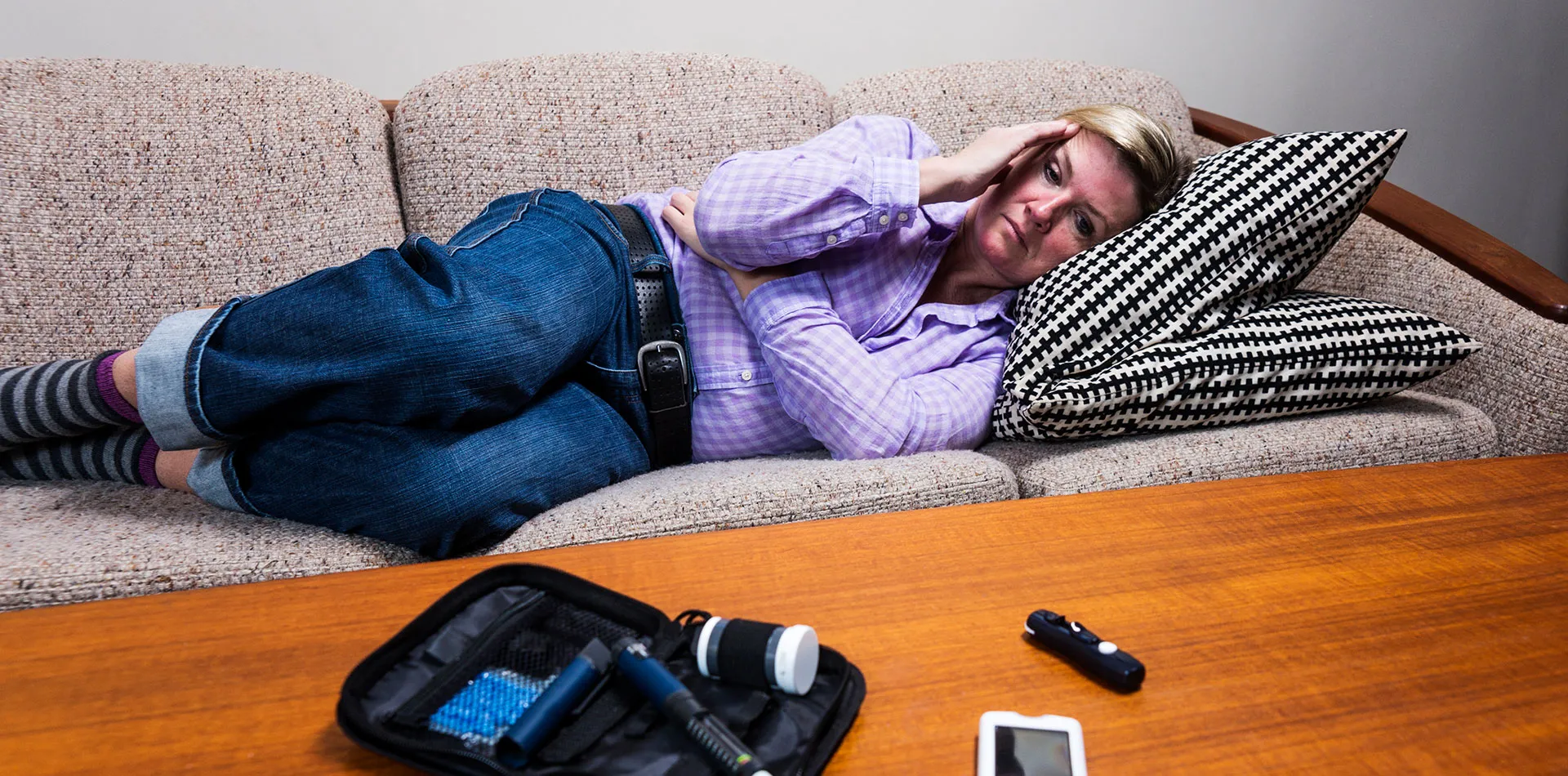
Hypoglycemia happens when blood sugar (glucose, body's primary energy source) level gets lower than usual. Generally, the condition results from diabetes treatment, but some drugs and various other conditions can also cause low blood sugar in people that don't have diabetes.
Hypoglycemia requires prompt treatment as blood sugar levels are low. People with a fasting blood sugar of 70 milligrams per deciliter (mg/dL) or below, or 3.9 millimoles per liter (mmol/L), may risk at risk of hypoglycemia. Consult the doctor for advice.
Treatment usually requires getting the blood sugar to normal levels with high-sugar foods or drinks, or medications. Long-term treatment may require recognising and treating the reason for hypoglycemia.
When blood sugar level gets very low, the body may experience an irregular or fast heartbeat, pale skin, shakiness, fatigue, anxiety, hunger, irritability, sweating and tingling or numbness of the lips, tongue or cheek.
When hypoglycemia worsens, signs can include visual disturbances, such as blurred vision, seizures, loss of consciousness and confusion, abnormal behavior or both, such as the inability to complete routine tasks.
Get doctor's help if you witness hypoglycemia symptoms but don't have diabetes. Or when you have diabetes, drinking juice, regular soft drinks, eating candy, or taking glucose tablets doesn't help treat your hypoglycemia condition. If the symptoms of hypoglycemia get severe or the person loses consciousness, take him to the hospital in an emergency.
Hypoglycemia happens due to falling of the blood sugar (glucose) levels below normal levels. There are several reasons why blood sugar levels get too low, mainly due to a side effect of drugs used as a remedy for diabetes.
When you eat, the body breaks down carbohydrates from foods like rice, pasta, bread, vegetables, fruit and milk products into different sugar molecules, including glucose - the primary energy source in the body. Glucose enters most tissues' cells with the help of insulin — a hormone secreted by the pancreas, which gives fuel to the cells. Any extra glucose is collected in the liver and muscles in the form of glycogen.
When the body doesn't get food for several hours, the blood sugar level drops, then another hormone from the pancreas signals the liver to break down the saved glycogen and release glucose into the bloodstream. It manages the blood sugar to be normal until the body gets food again.
The body can make glucose; the process happens mainly in the liver and kidneys.
When the body has diabetes, it may not be making enough insulin (type 1 diabetes) or is less responsive to it (type 2 diabetes). This results in glucose piling up in the bloodstream that may reach seriously high levels. It will then require insulin or other drugs to lower blood sugar levels.
However, taking more insulin or other diabetes medications result in blood sugar levels dropping too low, inducing hypoglycemia. Hypoglycemia may also happen when you eat less than usual while taking diabetes medication or do excessive workouts.
People without diabetes may experience hypoglycemia because of taking someone else's oral diabetes medication accidentally, drinking excessive alcohol without eating, or due to some other critical kidney or liver diseases like hepatitis or cirrhosis. Even eating disorders like anorexia nervosa or hormone deficiencies that regulate glucose production may be the cause. Insulin overproduction, due to a pancreas tumour (insulinoma) in rare cases, can cause this condition.
Hypoglycemia after meals
Although hypoglycemia usually happens when you haven't eaten, it sometimes occurs after some high in sugar meals because the body produces extra insulin than you need. This kind of hypoglycemia, called reactive hypoglycemia or postprandial hypoglycemia. It usually occurs to people that may have undergone stomach bypass surgery.
When hypoglycemia is untreated, it can lead to seizure, loss of consciousness, death. Hypoglycemia may also lead to falls, injuries, dizziness and weakness, motor vehicle accidents, and a greater risk of dementia in older adults.
The repeated episodes of hypoglycemia, over time, may lead to hypoglycemia unawareness. That is, the body and brain no longer produce signs that warn of the occurrence of low blood sugar, like shakiness or irregular heartbeats. This may get critical and life-threatening if hypoglycemia increases.
For diabetic people experiencing recurring episodes of hypoglycemia and hypoglycemia unawareness, the doctor usually will modify the treatment., The patient will be advised to raise the blood sugar level goals and get blood glucose awareness training.
When diabetes is not treated, the episodes of low blood sugar can be uncomfortable and frightening. Fear of hypoglycemia may result in you taking insufficient insulin that can lead to uncontrolled diabetes. Get advice from your doctor about your concern, and only change the medication dose as per the doctor's advice.
For those with diabetes, a diabetes management plan set with the help of your doctor will help. Always talk to the doctor about taking any new medications, modifying your eating or medication schedules, or adding new exercise as any change may affect your diabetes management and risk low blood sugar. Always carry a fast-acting carbohydrate like juice or glucose tablets that can help treat a falling blood sugar level before it falls dangerously low.
Use a continuous glucose monitor (CGM) for people with hypoglycemia unawareness, which sends blood glucose readings to a receiver. When the blood sugar levels fall too low, some CGM systems even alert you with an alarm. Even insulin pumps are integrated with some CGMs that can shut off insulin delivery when blood sugar levels drop too quickly to help prevent hypoglycemia.
For those who don't have diabetes but face recurring episodes of hypoglycemia, eating frequent small meals throughout the day is a temporary measure to limit your blood sugar levels from getting too low. However, you must ask your doctor to identify and treat the cause of hypoglycemia.
Patient Experience